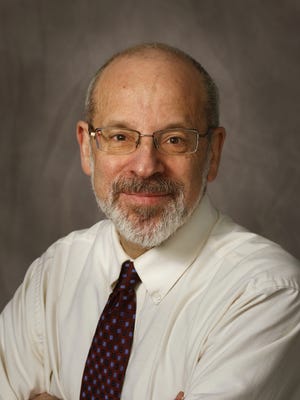Borsuk: What surprises do Wisconsin lawmakers have in store for education?
News of the future! Well, wait, we’ll get to that in a few moments. First, news of the past.

Every two years, the governor and Legislature labor mightily to come up with a new budget for Wisconsin. It’s a great and curious tradition that in the process of doing this, they add in stuff that doesn’t have much, if anything, to do with spending. Those who control the steering wheel and gas on this unwieldly vehicle are sometimes willing to fill it with surprising passengers.
Using the state budget as a vehicle, things like a statewide private school voucher program suddenly have strolled out of the back rooms in the Capitol in Madison in the smallest hours of the morning and — presto! — they’re state law, without any notice, public hearings or meaningful debate. (Yes, this really happened in 2013.)
Two years ago, the “opportunity schools” plan for taking control of some struggling schools away from Milwaukee Public Schools and giving control of those schools over to the Milwaukee County executive was put in the budget with almost no public consideration. That idea bombed.
Also two years ago, there was the unexpected, last-minute appearance in the state budget of a high school graduation test. Well, it’s not a real graduation test — Wisconsin doesn’t have one. But it is a test that all students in public, charter and private schools must pass to get a diploma.
So what’s the test? It’s the 100-question, short-answer quiz that is given to people applying for American citizenship. To get a diploma, a Wisconsin student needs to fill it out and get at least 60 right. Congratulations, Class of 2017! You are the first ones to have it noted on your transcripts that you passed the citizenship test.
So interesting things happen in the final stretch of the budget process. And that time is at hand.
This leads us to news of the future:
Gov. Scott Walker’s proposed budget was pretty friendly to schools and it appears schools of all stripes are in for increased state support of about $200 per student in each of the next two years. But what else is coming?
RELATED:Borsuk: Education budget looks good, but don't spike the ball yet
My ears perked up when I heard state Rep. Dale Kooyenga say in an interview May 8 with Wisconsin Eye, which broadcasts extensive coverage of politics, that change in the education scene in Milwaukee was still close to his heart.
"We'll definitely be doing something on MPS,” said Kooyenga, a Republican from Brookfield who has been a lead figure in education-related legislation.
RELATED:GOP lawmaker, union leader clash in forum on MPS
Like what? Kooyenga renewed his praise of MPS Superintendent Darienne Driver and said he wants to “work alongside her.” But he tipped his hand on a couple ideas.
Referring to state Sen. Alberta Darling (R-River Hills) and himself, he said Walker was putting a lot of money into education.

“What we’d like to see is some of that money maybe dedicated to third party organizations like a reading corps. ... Also, there’s a place called College Possible.”
Future news alert:
Milwaukee Succeeds, a collaborative effort of lots of local leaders, has been supporting an effort called the Wisconsin Reading Corps. Started in the 2015-'16 school year, it puts reading tutors in some city schools (MPS, charter and voucher). It is modeled after a program in Minnesota and the work is generally done by AmeriCorps workers. (It might be relevant that AmeriCorps may be in trouble due to federal budget cuts being proposed by President Donald Trump.)
Milwaukee Succeeds leaders have been eager to see the reading corps expand beyond the relatively modest effort it has been up to this point.
Danae Davis, executive director of Milwaukee Succeeds, acknowledged that Darling and Kooyenga were supporting funding of the effort. “We are thrilled for their support,” she said in an email, and the idea may draw broad backing, including from MPS leaders, depending on details.

As for College Possible, it also uses AmeriCorps workers as coaches and partners working with students, starting in their junior year in high school, on getting ready for and then admitted to college. And it offers continuing coaching and support to students into their college years. College Possible also has attracted pretty broad community support and works with schools in all of Milwaukee’s sectors.
So I suspect there will be moves made soon to provide state funding to these efforts and possibly other nonprofits.
I also suspect there will be action on other education fronts in the budget. Easing the paths to get into the statewide voucher program or vouchers for special education students?
It looks like efforts to change state law to allow schools to openbefore Sept. 1 have fizzled, although the idea is popular among education leaders. I suspect an idea popular among some tax hawks, tightening up state’s laws on local referendums that allow a school district to spend money beyond the normal state-imposed limits, also will fizzle.
But, as the saying goes, it’s tough to make predictions, especially about the future. (That’s often attributed to Yogi Berra, although it appears he didn’t coin it.)
So who knows what surprises there might be? Who knew there would be a civics test requirement for high school graduation at this point two years ago? Several weeks later, there it was. Which, in itself, is some kind of civics lesson.
Alan J. Borsuk issenior fellow in law and public policy at Marquette law School. Reach him at alan.borsukj@marquette.edu